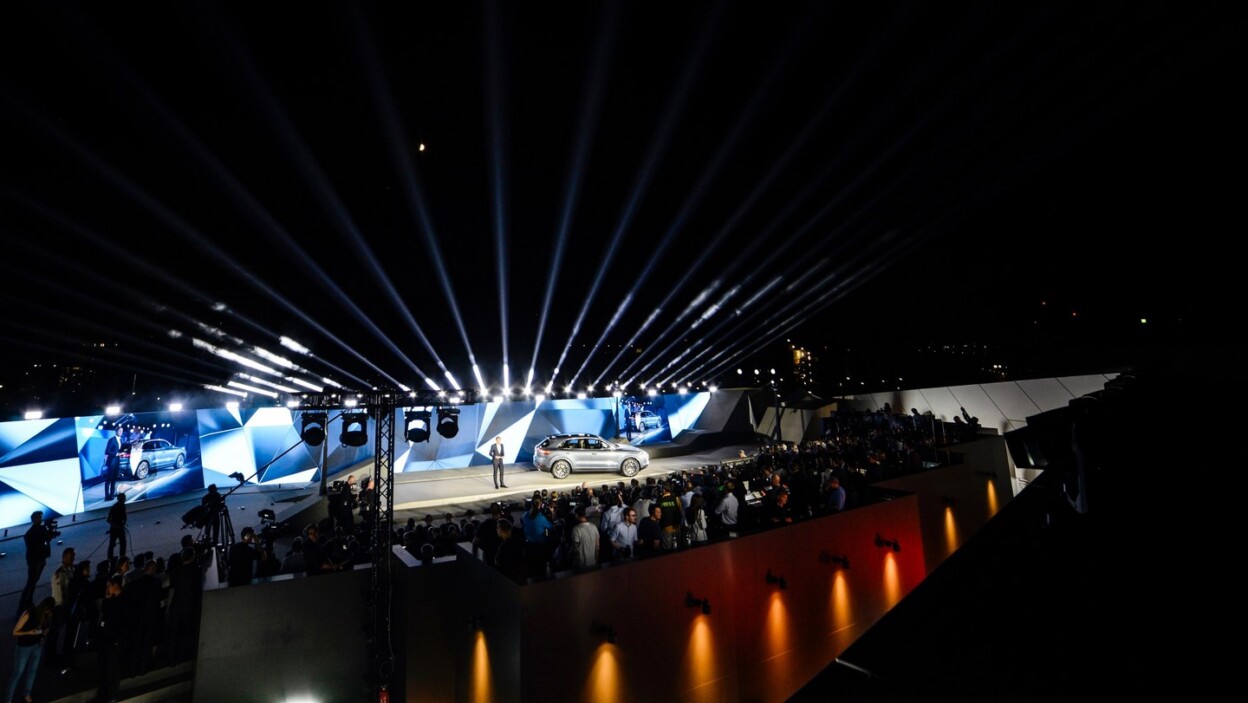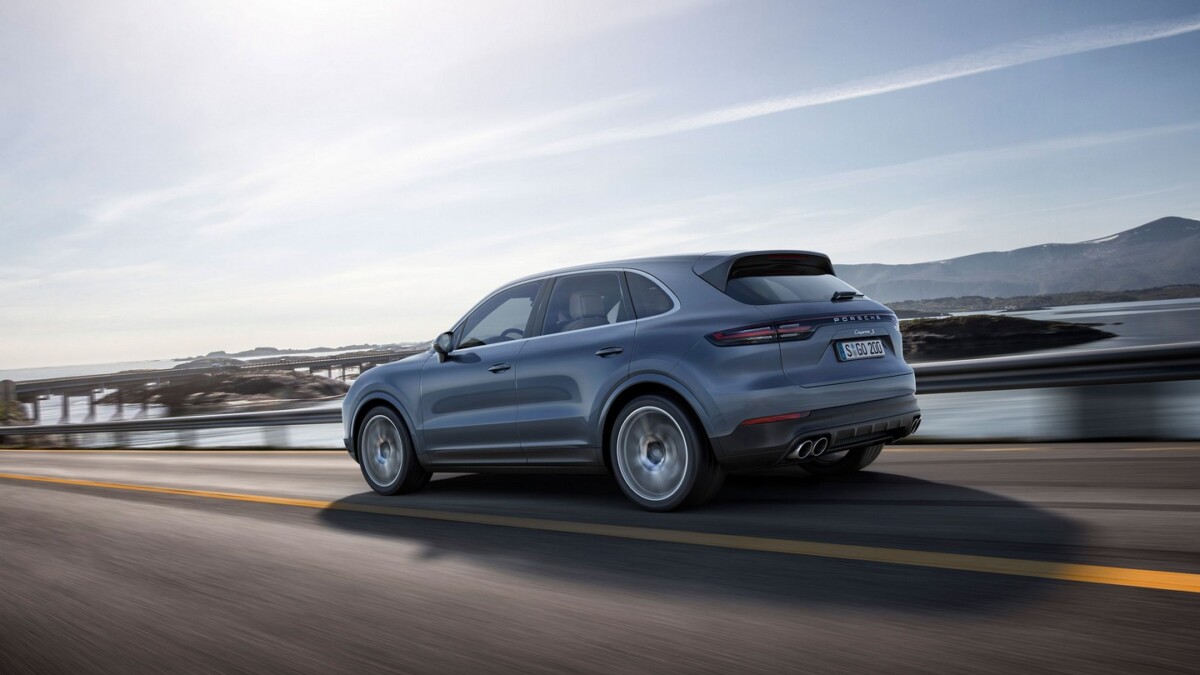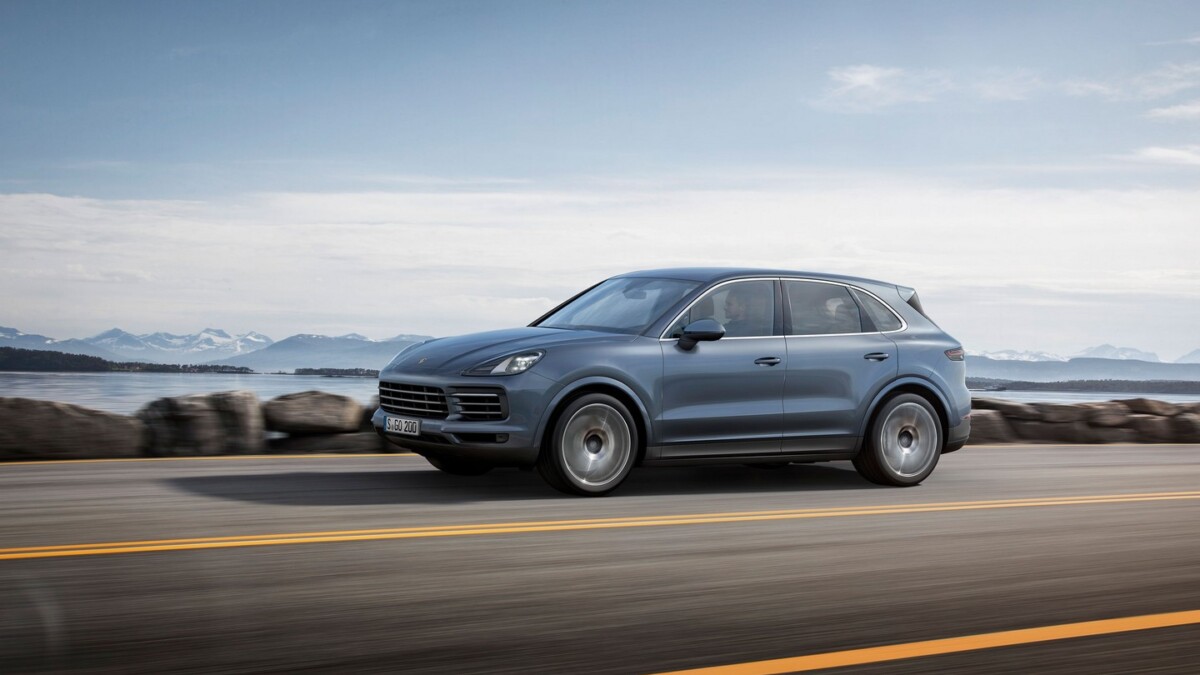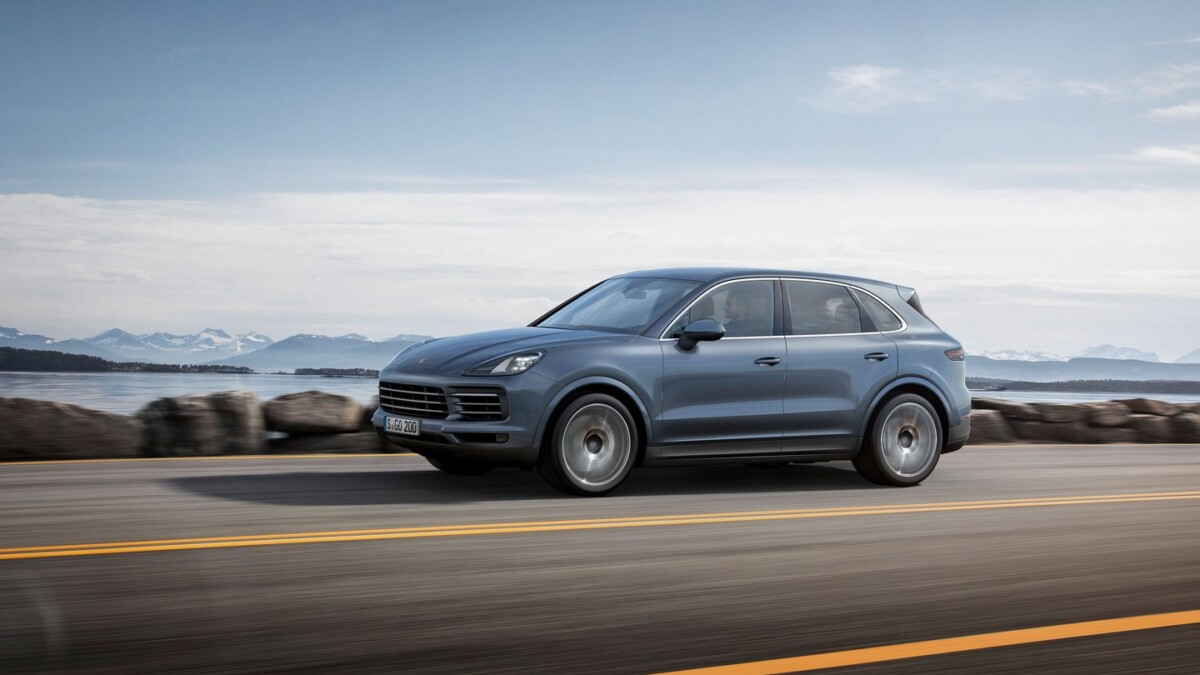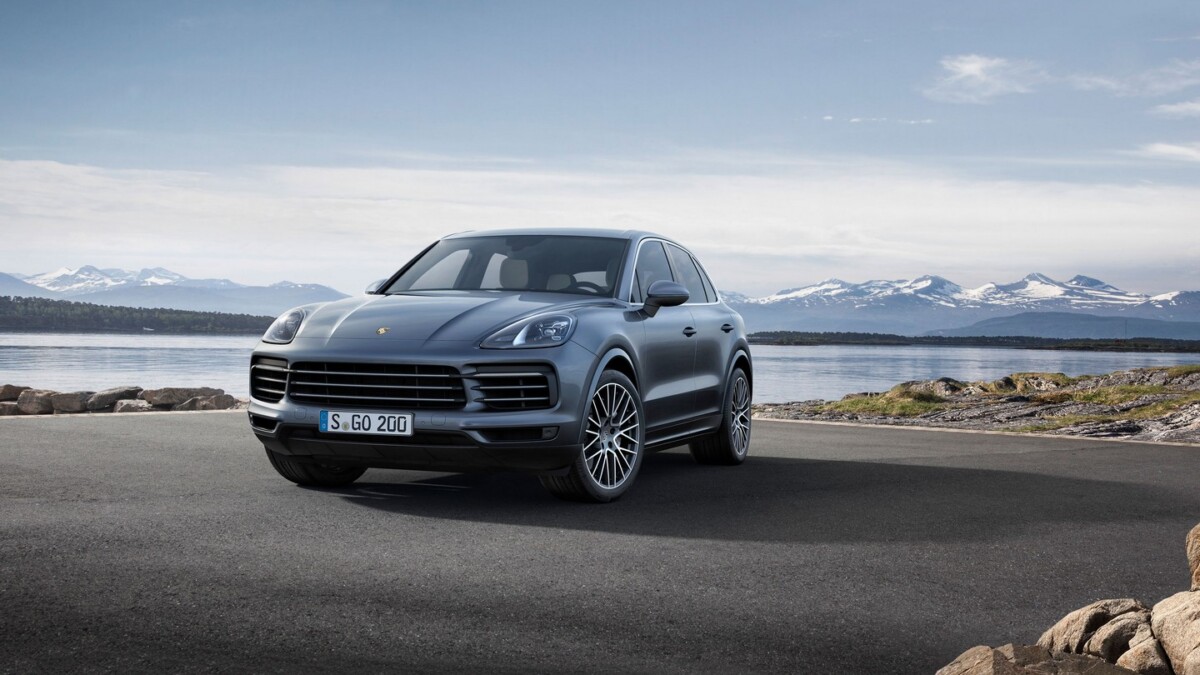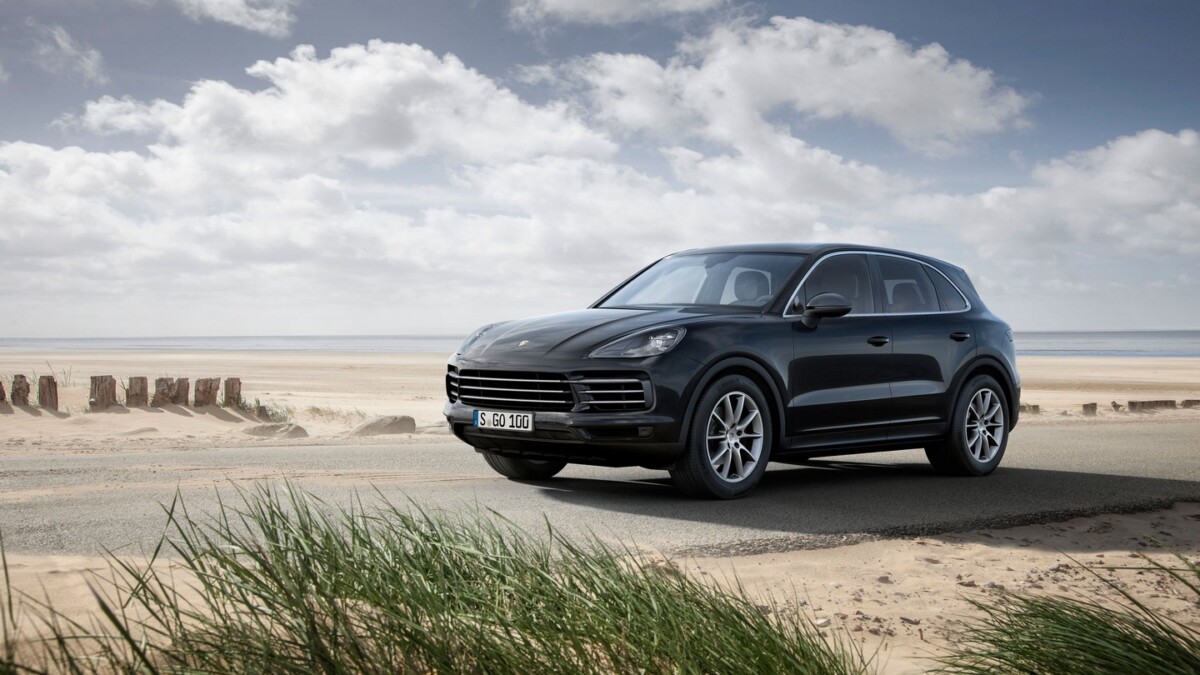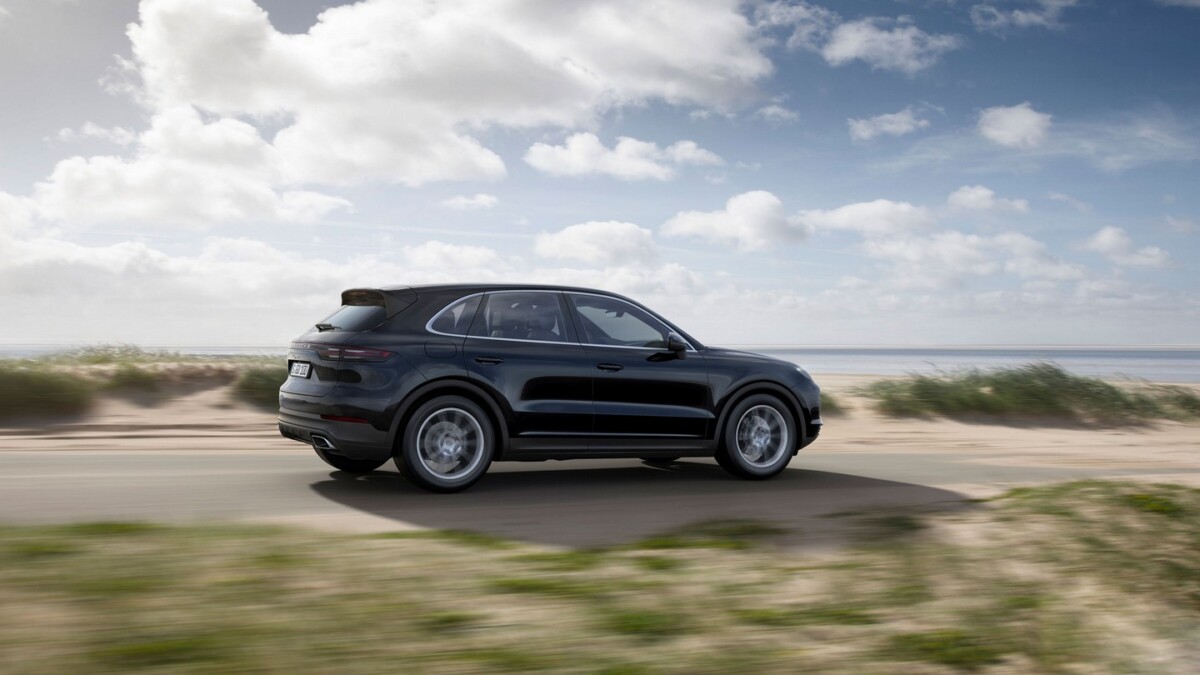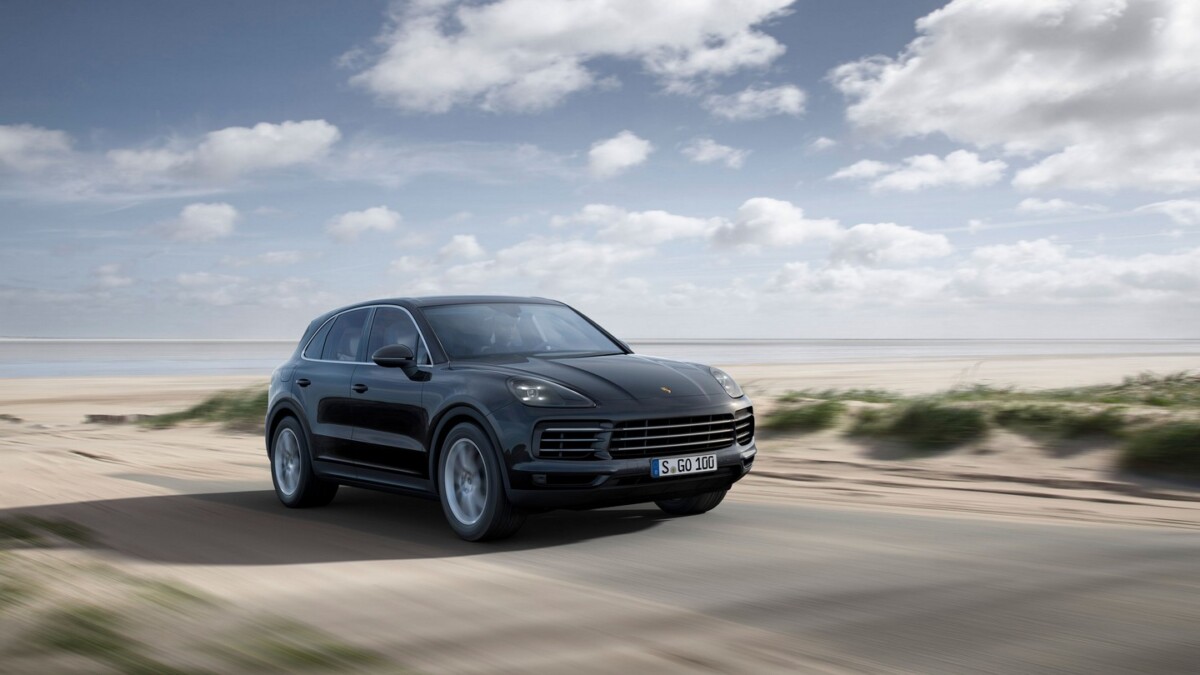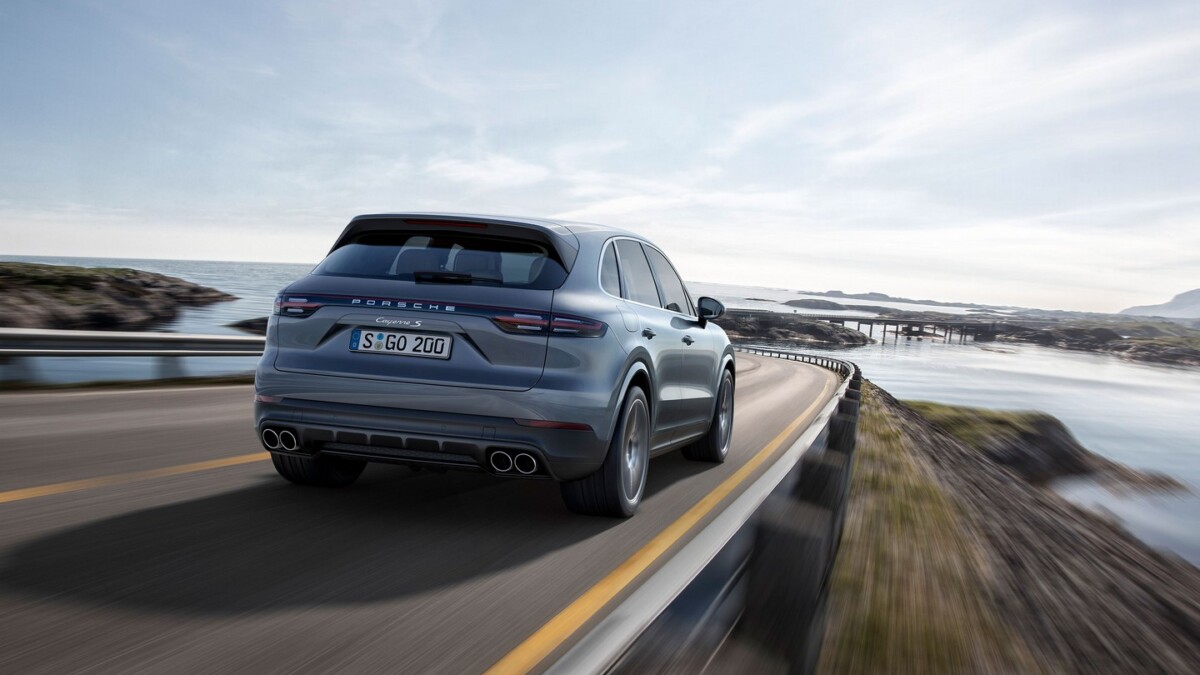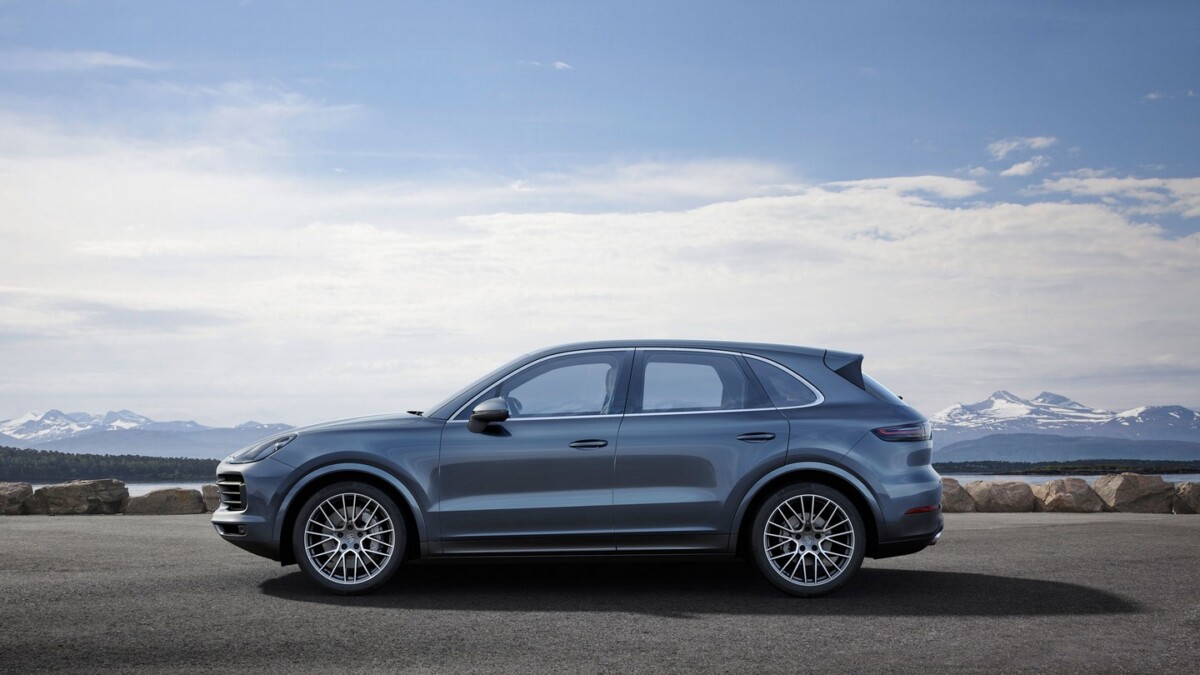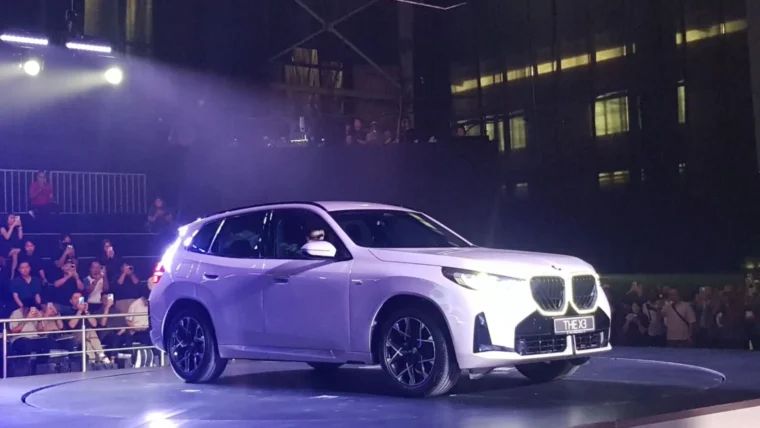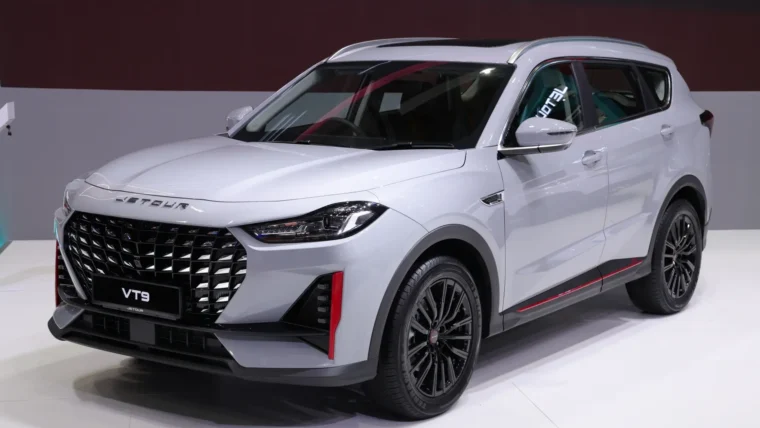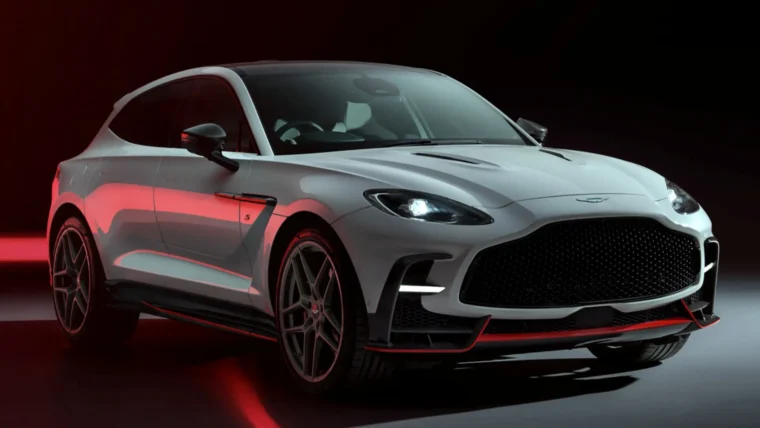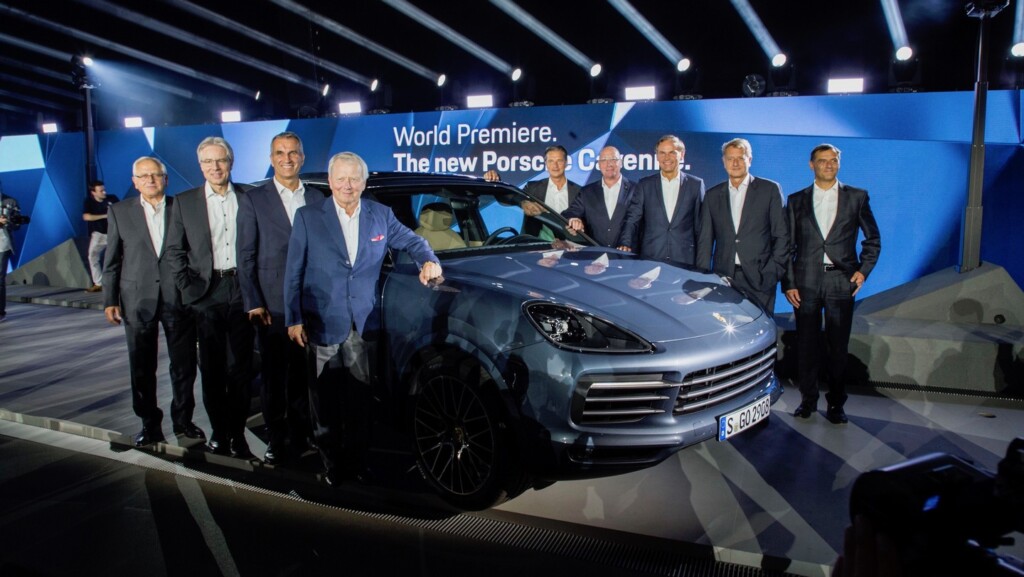
Porsche held a spectacular event last Tuesday in Stuttgart-Zuffenhausen to unveil the new Cayenne. The third generation of the successful model, more than 760,000 units of which have been sold since 2002, is a completely new development. The vehicle will combine even more of the typical Porsche performance with excellent everyday practicality. Despite its extended standard equipment, the Cayenne is up to 65 kilograms lighter thanks to its intelligent lightweight construction. At launch, two turbocharged six-cylinder petrol engines will be available, with 250 kW (340 hp; Fuel consumption combined 9.2–9.0 l/100 km; CO2-emissions 209–205 g/km) in the Cayenne and 324 kW (440 hp; Fuel consumption combined 9.4–9.2 l/100 km; CO2-emissions 213–209 g/km) in the Cayenne S.
“We have completely redeveloped our successful model. It has been visibly and tangibly improved and perfected in all respects. The Cayenne has also been digitalised and networked throughout to give it a forward-thinking design”, says Oliver Blume, Chairman of the Executive Board at Porsche AG.
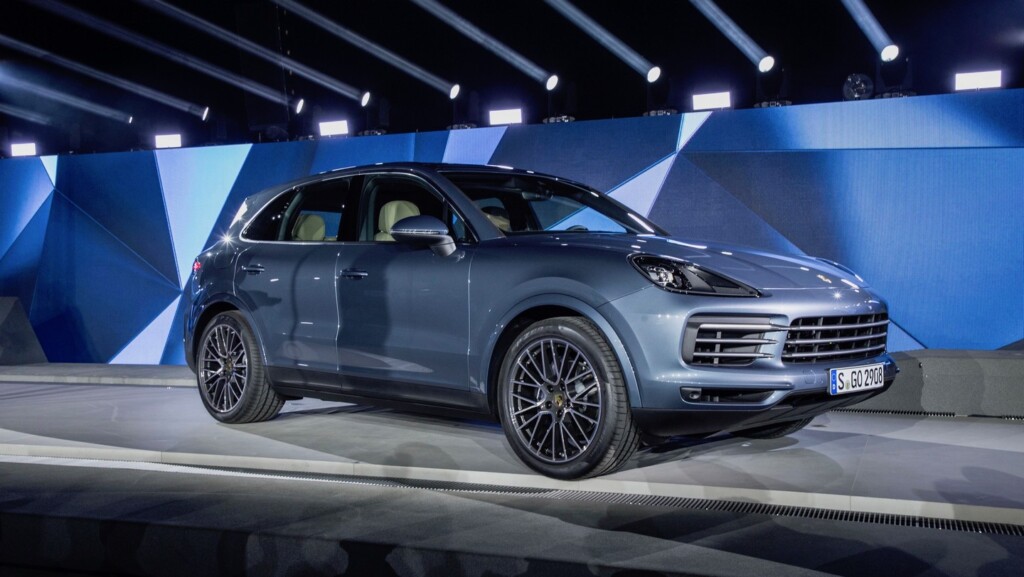
More Porsche, more Cayenne
Porsche has also enhanced the look of the Cayenne significantly: “Our primary objective was to accentuate the character of the vehicle. More Porsche, more Cayenne. The new Cayenne is more precise, elegant, athletic and expressive”, says Michael Mauer, Director of Style at Porsche AG, who unveiled the style of the new Cayenne alongside Peter Varga (Director Exterior Design) and Ivo van Hulten (Director Interior Design).
The first appearance of the new Cayenne at the Porsche Museum was accompanied by “Sinfonie des Lebens” (Symphony of Life), a piece composed by Jesse Milliner and performed by the Bohemian Symphony Orchestra Prague and the wind ensemble from the Leipzig Gewandhaus Orchestra, a partner of Porsche. The symphony was complemented by dancers, live musicians and an elaborate light show.
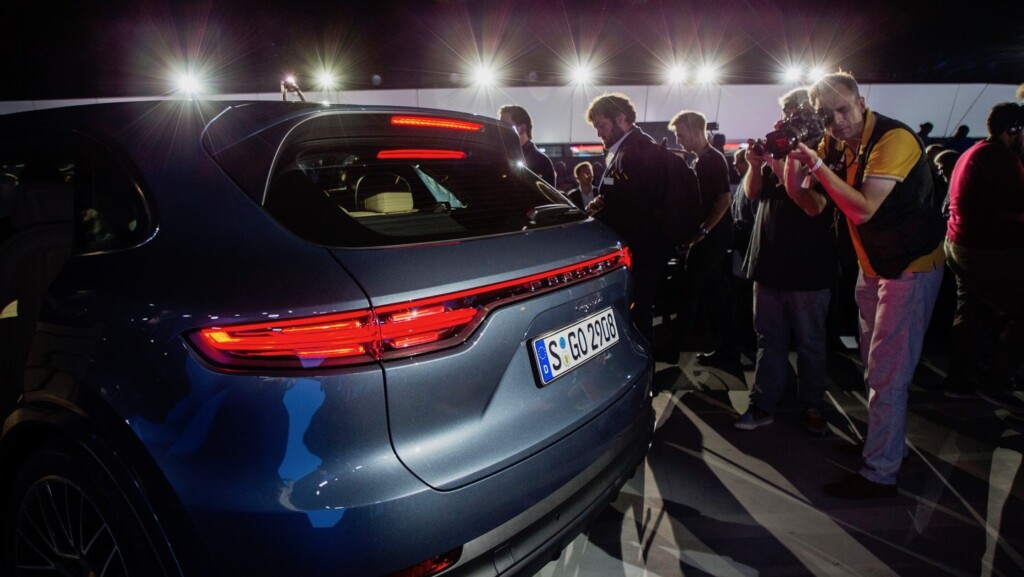
Cayenne and Cayenne S market launch
The new Porsche SUV is launching in two variants: The Cayenne with a six-cylinder turbo engine and displacement of three litres delivers 250 kW (340 hp), developing a torque of 450 Nm. That means that even the standard model achieves outstanding driving performance: It accelerates from zero to 100 km/h in 6.2 seconds (5.9 seconds with the Sport Chrono Package). The maximum speed is 245 km/h. The second model to launch is the Cayenne S. It is driven by a 2.9-litre V6 engine with twin turbocharging. This engine, which has also been newly developed, delivers 324 kW (440 hp), achieving a torque of 550 Nm – 15 kW (20 hp) more than its predecessor. Accordingly, the vehicle accelerates from zero to 100 km/h in just 5.2 seconds (with Sport Chrono Package: 4.9 seconds). The maximum speed is 265 km/h.
The Cayenne is based heavily on the iconic 911 sports car: The third edition of the SUV, which has also been enhanced visually, now has mixed tyres and rear-axle steering for the first time. In addition to these typical sports car features, the on-road capabilities are further improved by active all-wheel drive as standard, Porsche 4D Chassis Control, three-chamber air suspension and the Porsche Dynamic Chassis Control (PDCC) electronic roll stabilisation system. Despite its significantly extended standard equipment, the Cayenne weighs up to 65 kilograms less than its predecessor and remains perfectly suited to off-road use.
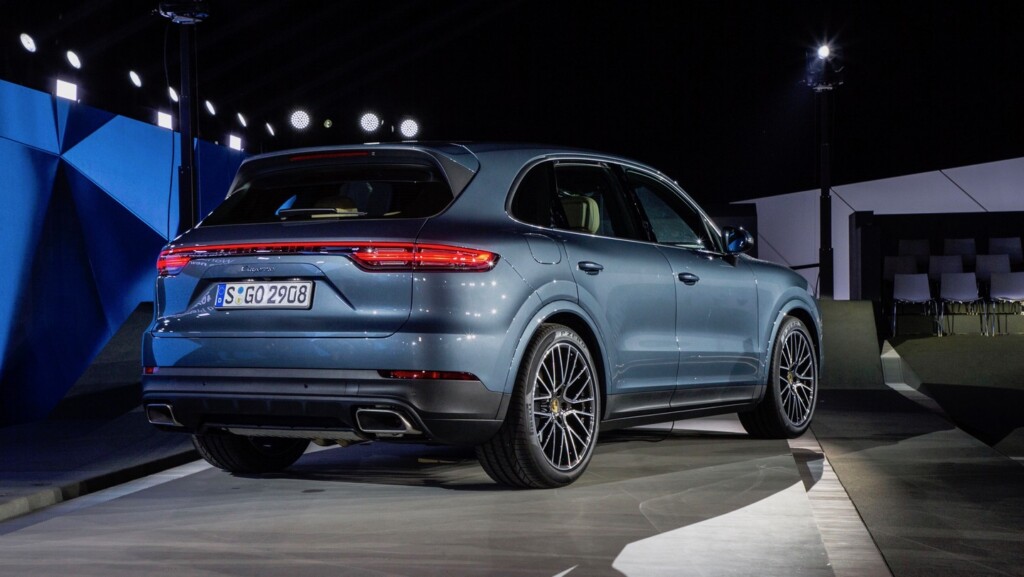
Faster on the road, even more impressive on rough terrain: Tiptronic S and PTM
The Cayenne’s expanded performance range, improving both sportiness and comfort, is due in no small part to the new eight-speed Tiptronic S gearbox. Shorter response times and sportier ratios in the lower gears enhance both on-road performance and off-road capability. At the other end of the expanded spread between comfort and sportiness, the long-transmission eighth gear ensures low torques, optimised fuel consumption and relaxed driving.
The new Cayenne offers even more potential when it comes to sporty performance. Porsche has redeveloped the Sport Chrono Package based on the model of the sports car. The Mode button on the steering wheel is one clear indicator of this approach. As well as the Normal, Sport and Sport Plus driving modes, the driver can select an individually configurable mode. Pressing the Sport Response button in the centre activates the engine and transmission maps, which are calibrated for maximum performance. The Sport Chrono Package also includes a separate PSM Sport mode, in which the driver can utilise the new Cayenne’s full driving dynamics.
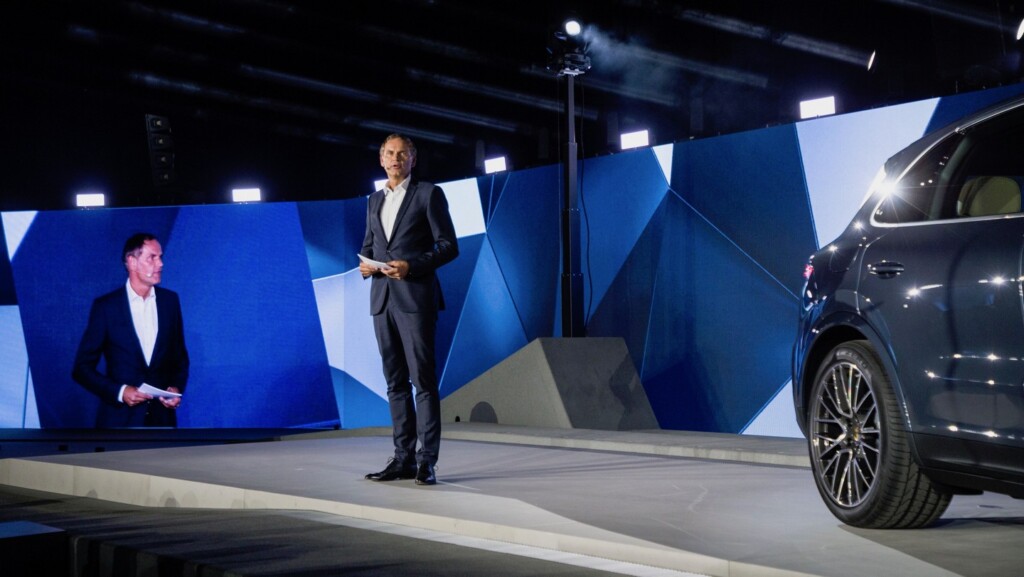
Reduced weight – lower fuel consumption – even more driving pleasure
Sports cars need a lightweight construction. Following the 911 and the Panamera, the new body of the Cayenne also uses an intelligent combination of alloy and steel. The exterior is made entirely of aluminium. The floorpan assembly, front section and virtually all the chassis components are also manufactured from alloy.
One particular technical highlight is the innovative lithium-ion polymer starter battery, which alone accounts for a weight saving of 10 kg over the predecessor model. In total, the weight of the Cayenne when empty has been reduced from 2,040 to 1,985 kilograms – even in spite of the significantly extended standard equipment, which now includes LED main headlights, larger wheels, ParkAssist (front and rear), an LTE telephone module including a WiFi hotspot, Porsche Connect services and anticipatory pedestrian protection.
Other posts by Mark Leo

